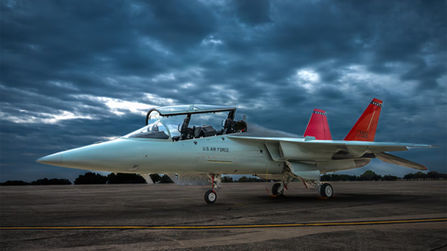Far-Reaching Steps To Ensure Denel's Sustainability
- Garth Calitz
- Aug 17, 2021
- 3 min read

A streamlined and refocused Denel will be able to be a sustainable business and return to profitability within the next five years. This will be done through a comprehensive restructuring of the defence technology company.


“We are determined to turn Denel around and repurpose it while retaining the core capabilities required to meet South Africa’s strategic security requirements,” says William Hlakoane, the company’s interim Group Chief Executive. "Furthermore, we are encouraged by the unwavering support that we have been receiving from our shareholder, the Department of Public Enterprises. This is underlined by its acknowledgement that there is a need to assist Denel with regard to its financial situation. Thus, I am positive that the discussions with other government departments that have a keen interest in Denel’s survival such as the Department of Defence and the National Treasury will soon bear positive results”.

Part of this plan includes reducing Denel’s current operating divisions (plus one subsidiary) from six to two. One division will focus on engineering, while the other focuses on manufacturing and maintenance, of which the latter is our core business.
The engineering division will merge all Denel’s capabilities in artillery, infantry and vehicle systems, its missile and precision-guided munitions business as well as its management of complex integrated systems. Furthermore, it will drive the company’s diversification of technology into existing and new markets in fields such as command and control, cybersecurity and communications, whilst researching and developing new technologies of the future.
The maintenance and manufacturing division will build on Denel’s market reputation in the fields of aeronautics, unmanned aerial vehicle systems and the production of small and medium calibre ammunition as well as the production of combat vehicles.

Denel’s campuses will be optimised to reduce their footprint and contain costs. This will be supplemented by further reductions in the executive cost structure, and the implementation of the shared services model in areas such as supply chain management, human capital, IT and finance. Hlakoane says conservative estimates indicate that the sale of non-core or non-profit making assets will realise a value of about R1.5bn over the next five years.

However, there is an immediate need for significant cash injections to support current operations and implement the new operating model. Although some of these activities are at an advanced stage, we do acknowledge that it will take some time to sell these assets while the payment of legacy debt and the requirements for liquidity are immediate,” says Hlakoane. It is imperative for Denel to continue executing programmes in order to generate cash to pay salaries and other operational requirements whilst driving these strategic actions.

Notwithstanding the much-needed critical skills that we have lost over the past year as we struggled with the payment of employee’s salaries, the priority will be to rebuild these skills sets over time while maintaining the current. “Denel of the future will have to be globally competitive, therefore it is critical that we are able to attract the next generation of engineers, designers, scientists and technicians,” he says.

Denel’s board and management are not oblivious to the plight of our colleagues who continue to face hardship as a result of our inability to pay full salaries and we continue to work tirelessly to address this issue. “We apologise for the stress and anxieties caused to employees and again give the assurance that we will do everything in our power to meet our obligations in line with employee contracts.”




























Comments